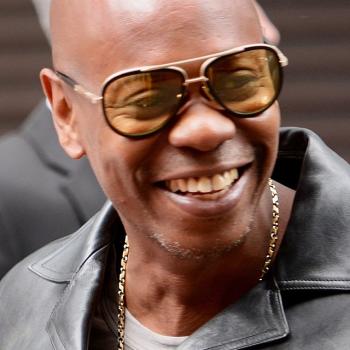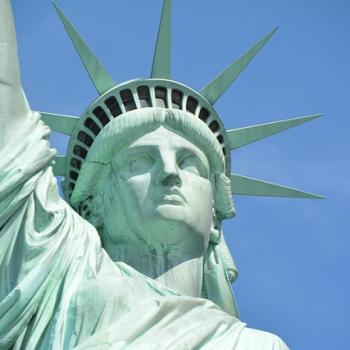"Sentimental Education"
It's a cliche to say that the Super Bowl is a media circus and an advertising godsend, but it is also, as many observers and participants have claimed, a momentous event embedded in a religious culture tied to sports generally and to football specifically. A litany of remembered moments and memorable icons outfit the landscape, like Joe Namath's famous prediction of a Jets victory over the Colts, or the person of Vince Lombardi who stands as a ghostly beacon in football lore. But in addition to the money and glory associated with the game, symbolic and ritual orders are also reaffirmed, especially at the very center of the festivities -- the middle of the field and in the middle of the game - and at the very end of a long season of conflict and strife, risk-taking, and chance for the teams involved.
Flags flying, fans behaving, time passing, authorities presiding, athletes competing -- the game is predicated on familiar sights and sounds, movements and interactions, a predictable order of things, in sports perhaps more so than in the daily world outside of sports. Yet the very nature of play is inherently unpredictable and volatile, and therefore ripe for emotionally-driven, spiritually-hungry humans just waiting for something memorable and meaningful to happen. Although some see it as simply a national, secular holiday, the Super Bowl plays out in American culture year after year as a religious event, sacrosanct and celebratory in the lives of millions of fans from all faith traditions and philosophical schools, including believers and non-believers, God-fearing fundamentalists and free-spirited lefties.
Although worlds away from Balinese cockfighting, the Super Bowl, and football generally, is a revealing social text that expresses a story that Americans like to "tell themselves about themselves." Eminent anthropologist Clifford Geertz sees this interpretive function in the social activities and symbolic systems surrounding the popular Balinese sport, which cannot simply be characterized as a rite or a pastime. Geertz's analysis of cockfighting can be applied to a "read" of the Super Bowl: "What the [Super Bowl] says it says in a vocabulary of sentiment - the thrill of risk, the despair of loss, the pleasure of triumph. Yet what it says is not merely that risk is exciting, loss depressing, or triumph gratifying, banal tautologies of affect, but that it is of these emotions, thus exampled, that society is built and individuals are put together."
This "sentimental education," to continue with Geertz's insightful language, communicated through the emotional January ritual is culturally revealing. But it is a distinctively religious story as well, with or without God in the action, that encompasses and resolves -- however temporarily and precariously -- a variety of unresolved social realities outside of the field of play, such as the persistence of violence and group conflict, confusion around gender divisions and sexual expression, and hypocrisy and double standards in traditional religions where winners and losers do not always represent a just, moral order.
Miniature Gardens of Eden
A time for carousing and partying, praying and gambling, the Super Bowl and surrounding festivities arouse passions and behaviors that demonstrate deep life commitments and valuable stakes. Janet Jackson flashing her breast is one way to identify how much is on the line, but the somber, solemn halftime show of Super Bowl XXXVI, just months after 9/11, also captures and reinforces the stakes of the game, as well as the centrality of the ritual in American life. With the names of the dead scrolling behind them, U2 performed on a heart-shaped stage surrounded by patriotic symbols of the American nation - a poignant, heartbreaking image in a night full of ritual acts for the dead and social solidarity, including the raising of a World Trade Center flag by a group of New York City firemen.
According to some reports, the resumption of life -- in particular, forms of play like professional sports -- after that fatal and fateful day had healing power and religious meaning. In a September 2002 USA Today article accompanied by an image of the flag-raising, journalist Erik Brady wrote that, "Ballparks and stadiums became town squares where much of the ritual of public healing took place... Ballparks became home to sacramental ceremony," places that he later refers to "miniature gardens of Eden." This Eden does not require the creation of God but instead has sacred vitality on its own terms, a meaningful space where the religious values and valences spring from the play on, and rituals surrounding, the field itself.
The Super Bowl is a holy day as much as it is a sports event, holy as a sacred carnival dedicated to, and undergirded by, consumerism and masculinity, nationalism and play. But at bottom, as popular culture scholar Jack Santino has proposed, the game is really about the desire for power and empowerment.




